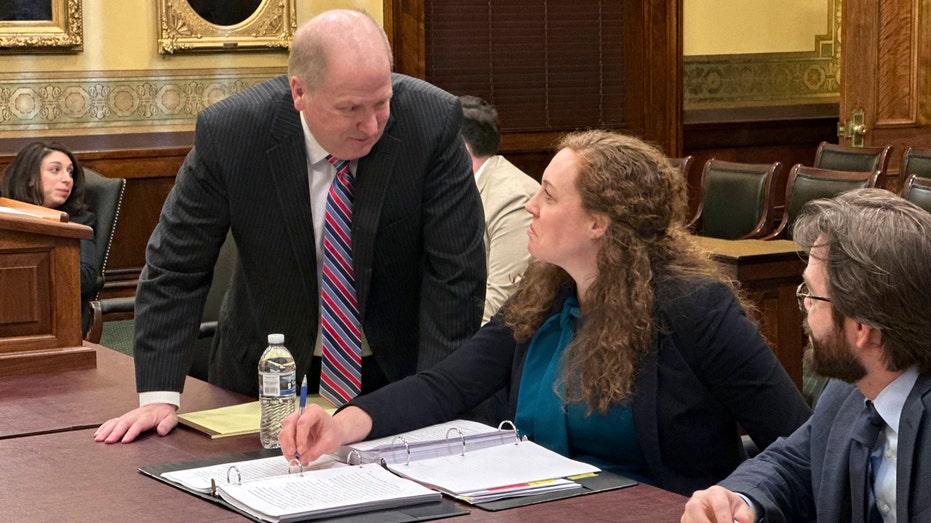Missouri’s high court entertained arguments Thursday on whether to force changes to the state’s Senate districts in a case that has divided majority-party Republicans over how to apply new voter-approved redistricting criteria.
The lawsuit brought by voters contends that Senate districts in suburban St. Louis and western Missouri’s Buchanan County violate the state constitution by needlessly splitting cities or counties into multiple districts. It seeks revised districts before this year’s elections.
Missouri is one of a dozen states where legal challenges are still pending against congressional or state legislative boundaries that were redrawn based on the 2020 census. In many states, those fights have pitted Democrats against Republicans as each party strains to shape districts to its advantage.
REDISTRICTING REPORTS DUE IN CASE POISED TO RESHAPE WISCONSIN LEGISLATURE
But the Missouri lawsuit has divided Republicans into two camps. A Republican Senate committee supports the map enacted in 2022 by a panel of appeals court judges. But a GOP House committee sided with Democratic-aligned voters suing for the districts to be overturned.
Each side contends its approach best discourages gerrymandering, in which mapmakers manipulate boundaries to benefit a particular political party, racial group or incumbent lawmakers. The outcome of the case won’t affect immediate control of the Senate, where Republicans hold a 24-10 majority over Democrats.
“But what it will do is affect the next redistricting and how we do it” after the 2030 census by establishing which criteria are most important, plaintiffs’ attorney Chuck Hatfield said after Thursday’s arguments.
It’s unclear how quickly the court will rule. Candidate filing for the August primary elections is scheduled to run from Feb. 27 to March 26.
At issue are revised redistricting criteria approved by voters in a 2020 ballot measure. The first criterion says districts must be nearly equal as practical in population but can deviate up to 3% “if necessary to follow political subdivision lines,” such as counties and cities.
The second criterion requires compliance with the federal Voting Rights Act, the third prioritizes “contiguous” and “compact” districts, and the fourth requires communities to be kept whole in districts if possible under the equal population guidelines.
The lawsuit contends it was unconstitutional to split Buchanan County into two districts represented by Republicans and the St. Louis suburb of Hazelwood into two districts represented by Democrats. A trial judge rejected that assertion in September, ruling the map was reasonable because the constitution places a higher priority on compact districts than intact communities.
But Hatfield argued to Supreme Court judges that it’s more important to keep counties and cities intact than to draw compact districts. Otherwise, it will “enable efforts to gerrymander state legislative districts for nefarious political purposes” by splitting communities, Hatfield wrote in a court brief.
The state attorney general’s office defended the current Senate map. Deputy Solicitor General Maria Lanahan told judges that various other Senate districts — though not challenged by plaintiffs — also split counties while not following political subdivision lines. She said the plaintiffs were suggesting a standard that would be particularly hard to follow in heavily populated counties.
Prior to Thursday’s arguments, the Missouri House Republican Campaign Committee filed a court brief supporting the appeal. It asserted the community splits in the Senate map are “completely unnecessary” and that the House map — which avoided such splits — could be open to lawsuits if the court prioritized compactness.
The Republicans’ Missouri Senate Campaign Committee countered with its own court brief, contending that House Republicans had “aligned with Democratic interests” and that individual representatives may have “personal interest in tailoring Senate districts in which they hope to run in the future.”
Senate Republicans asserted that the current map avoids partisan manipulation that can occur when overemphasizing communities.
“Compact, contiguous territory is the first and most powerful line of defense against political and racial gerrymanders,” Senate Republicans wrote in a brief filed by attorney Eddie Greim.
























